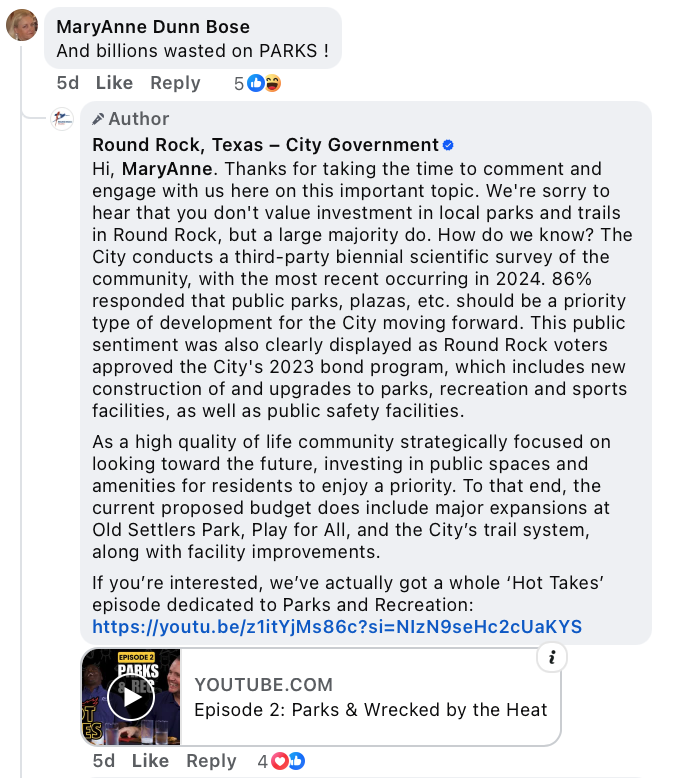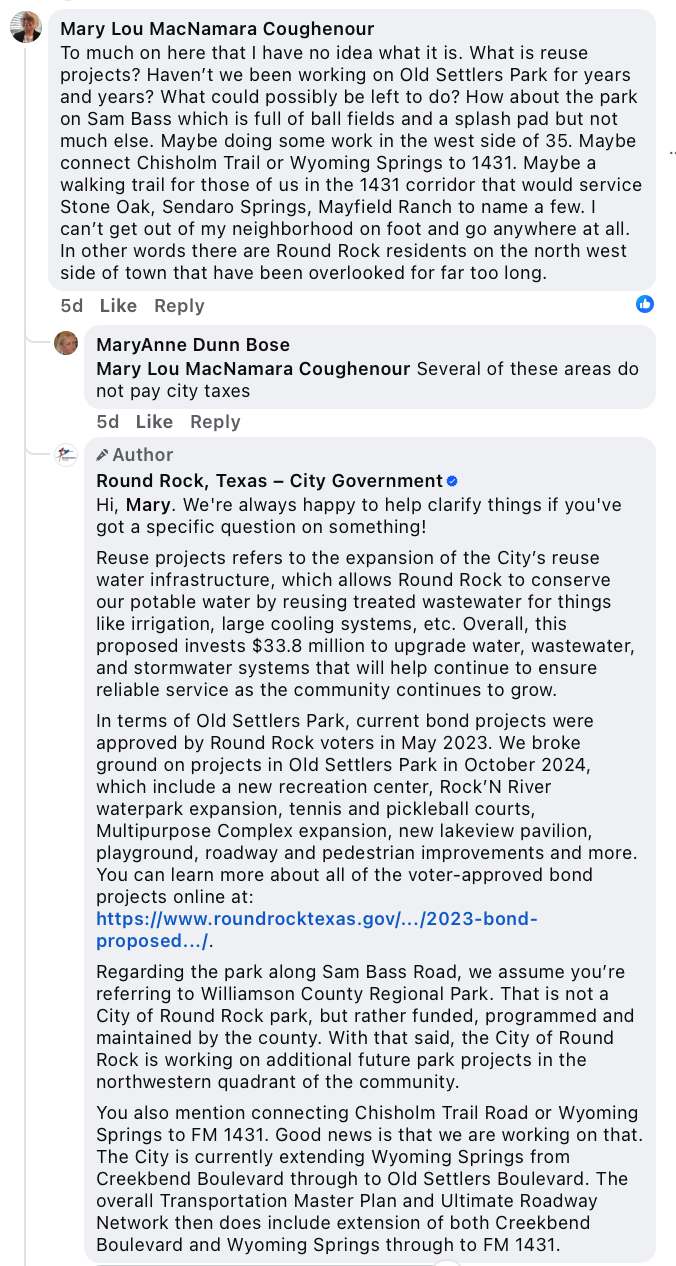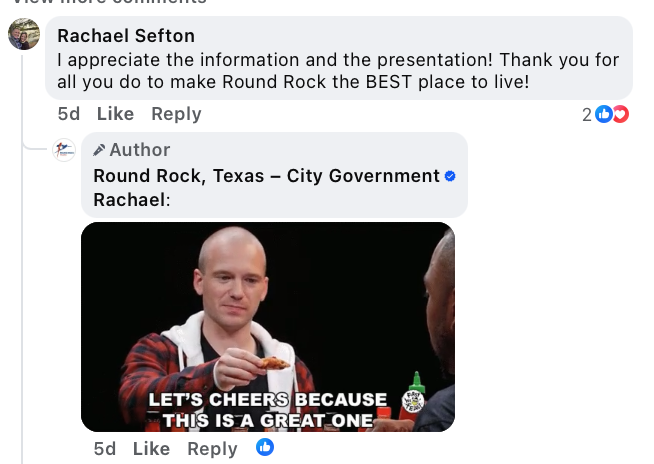No “They.” Only We.
Charlie Kirk’s killing is horrific—full stop. What weighs on me most is how the ethos of social media has nearly fully infected real life. Outrage has become performance art, and murder becomes fodder for viral takes. There’s significantly more demonization than dialogue, more of us-versus-them than thoughtful engagement.
Logging off sounds tempting, but here’s the hard truth: for millions, social media is the front page of government. Local agencies can’t afford to ignore that. Yet the very platforms where we’re forced to meet residents are designed to amplify the worst of human nature. That makes investment in communications outside the algorithm even more vital. Social can’t be your only game—it’s too toxic a playing field to win there alone.
Long-time readers may remember I used to run a Wednesday series called TL;dr, where I pulled together three sharp takes on a single issue. Consider this edition a one-off in that spirit.
I want to share three of the sharpest takes I’ve read on the Kirk murder. Together, they chart a path from outrage to responsibility to the kind of disagreement that makes democracy work. And at the end, I’ll highlight a practical example from local government on how to do this right—on social media, no less.
1. Sam Harris: Log Off
Read the full piece in The Free Press
Harris, who probably disagrees with much of Kirk’s politics, begins with compassion for Kirk’s family, then delivers a bracing warning about what platforms like X and TikTok are doing to our shared reality. He argues that social media is less a tool and more a cultural toxin—“a hallucination machine, a funhouse mirror, a digital sewer.”
“If the medium is the message, the message is mass psychosis—and it will send us careening from one political emergency to the next.”
For Harris, the path forward is simple: log off, reclaim reality, and invest in the relationships and real-world experiences that keep us grounded.
2. Jonah Goldberg: “We” Versus “Them”
Read the full piece in The Dispatch
Goldberg condemns both the grotesque celebrations of Kirk’s murder and the demagoguery that tries to weaponize those extremes as representative of entire groups. He warns the “they are at war with us” rhetoric, amplified by figures like Steve Bannon and Jesse Watters, echoes the kind of language that preceded genocide in Rwanda.
“The demonic ‘they’ that Bannon, Watters, et al are conjuring does not exist. … There is no war.”
The real danger, Goldberg argues, is selective outrage and the erosion of shared norms. We tolerate too much slander, double standards, and rhetorical excess—because standing up to it is harder than scrolling past. His conclusion is stark: the center isn’t holding not because “they” broke it, but because we allowed it.
3. Yuval Levin: Have an Argument
Read the full piece in The Free Press
Levin flips the usual script: America’s problem isn’t too much disagreement, but too little. Instead of arguing with those we differ with, we retreat into partisan cocoons where the “other side” becomes caricatured villains. Social media and polarized institutions deepen the division rather than channeling it into productive debate.
“The purpose of politics is not to solve the fact that people who disagree with us exist, but to solve shared, concrete public problems in light of that fact.”
For local government leaders, the lesson is clear: disagreement is not a civic failure but a civic necessity. Constructive argument, structured negotiation, and patience with opposing views are the tools that keep democracy functioning—and keep communities from fragmenting.
Doing It Right: A Local Example
Logging off isn’t really an option. Harris challenges us to invest in relationships (tempting though logging off may be), Goldberg reminds us not to slander, and Levin urges us to argue well. The challenge for government professionals is translating that into daily communication.
To that end, I share a recent example from my friend and former colleague Austin Ellington and the team at the City of Round Rock, Texas. Their recent posts on the city’s proposed budget and tax rate—always contentious topics—show how government can engage directly, disagree constructively, and keep the focus on solutions instead of outrage.
First, here’s a video that shares highlights in the budget in one of the most creative and engaging ways I could possibly imagine.
The city shared the video on its Facebook page. Below are a few screen grabs that show an effective way to engage with those who disagree with the creative approach, as well as specifics in the budget.
First, a critique of creativity:
One resident pushed back against the city’s playful video series, saying government should “just give us the facts without the theatrics.”
The city’s response was long, thoughtful, and grounded in facts, explaining the reasoning behind the creative approach, linking to traditional resources, and clarifying how the proposed tax rate affects a median homeowner. It’s a great reminder that even sharp criticism deserves a serious answer.
Next, the perennial debate over parks:
Another commenter dismissed investments in public spaces as “billions wasted on parks.”
Instead of being defensive, the city leaned on evidence: pointing to voter-approved bonds and survey data showing 86% of residents prioritize parks. The reply framed parks as part of Round Rock’s quality-of-life strategy while linking residents to more information.
Then, confusion over jargon and lingo:
A resident flagged city “reuse projects” and other terms as confusing and wondered aloud if parts of Round Rock were being overlooked.
The city responded point by point: explaining the term, detailing bond projects, clarifying which parks are city vs. county, and sharing road project plans. It’s a masterclass in meeting residents where they are: acknowledge the concern, explain the jargon, and connect individual frustrations to larger community plans.
Finally, the payoff:
Not every comment was critical. One resident left a simple thank you:
The city answered with humor—a meme from the Hot Ones show of host Sean Evans raising a wing in cheers. A small touch, but one that reinforced the city’s humanity and built connection.
Together, these exchanges show that contentious engagement doesn’t have to devolve into outrage. When governments respond with respect, context, and even a touch of creativity, they can turn heat into light.
That’s the spirit of this special TL;dr edition: three national perspectives paired with one local example, all pointing to the same truth—serious questions, even when asked in frustration (and snark), deserve serious answers.
Onward and Upward.





